Let’s get straight to the point: word count isn’t the most important thing about your blog. Readers aren’t worried about how many words are in a post. They’re zeroing in on the content and, most importantly, the points that resonate with them.
So why are there even word counts, anyway?
Here’s the thing: the number of words in a post is a surface-level detail. What gets people buzzing and wanting to share a post is what they learn from it. Suggested word counts come from research that says a certain number of words in a post affect the reader’s attention span, the post’s “sharability,” and “findability” factors that boost its Google ranking. So, in sum: word counts are more like guidelines.
Good Content Matters
Marketing guru and web influencer Neil Patel says word count “only matters if the content is good.” So what makes content good? It needs to have quality and substance and needs to accomplish something—that is to say, it needs to have a point. It needs to be more than words on a page (or a screen).
And that’s why in a recent article we suggested you think substance, because some topics can be covered in a mere two hundred words, while others can be expounded upon to the four thousand–plus word-count range. And that’s also why we noted that thin content (which has no quality) isn’t equal to short content (which has a takeaway).
And here’s another tip: most readers aren’t reading every single word on the page. Your post is competing with the rest of the reader’s life: work, family, etc. (not to mention other content). More often than not, readers are scanning for main points and looking at headings, subheadings, and bullet lists. Research shows only 20 to 28 percent of your content gets read. So why waste time filling the page with fluff?
Short Posts
If you can say what you want to in fewer words and let the reader get on their way, then why not do that? Of course, this doesn’t mean you slap a few words down just to get content on your blog. Sometimes it takes a lot more work to be short, sweet, and to the point because you’re drilling down to the core of the information you want to share.
Elements of a good short post:
- Grabs the reader’s attention
- Gets straight to the point
- Has a clear call to action
- Avoids extra words just to fill a page
Short posts are good for:
- Product or service launches
- Invitations to subscribe to your newsletter
- Bloggers who post content every day (because writing lengthy posts on a daily basis more than likely equates to only writing posts rather than running a business)
If you want a good example of someone who posts high-quality, short posts, read Seth Godin’s blog. He’s king here because he’s able to say what he means in a way that’s concise and gives readers a huge takeaway.
(As a side note, you’ll notice he doesn’t fill his blog with images or white space. They are all on one page you can scroll through rather than separate pages. And it works because that’s his style. Brilliance!)
Long Posts
And while Mr. Godin may be the king of short posts, for most of us, long-form content is what rules the world these days. One of the biggest reasons is SEO, because Google’s web crawlers look at everything on your page: titles, subtitles, headers, and the words of the post itself. So the more words Google has to look at, the better it’s able to rank your content. And the more people who find your blog, the more readers you’ll have and the greater the chance they’ll become paying customers. ROI for the win!
But remember that little statistic we shared above about how readers only read about 20 to 28 percent of your post? Think of them as crawlers, too. They’re scanning your title, subtitles, and bullet lists and looking at images, such as photos, charts, and graphs, to get the gist of your article. That’s why the structure of long-form articles is so important.
Long-form article structure elements include:
- Subheadings that separate text so the reader can quickly find the content most valuable/applicable to them
- Visuals that convey the theme of the post and to break up text
- Bold text and italics that catch the reader’s eye and help them focus
- Short paragraphs with clear meanings and no filler words or fluff material
Long posts are good for:
- Subjects you are an expert in with regard to your field or industry
- Topics that require more in-depth research and discussion
It’s a good idea not to post longer articles on a daily basis. Not only does it require much more writing on your part, but each post needs its time in the spotlight, and you want to give your audience the opportunity to digest your articles.
How to Figure It Out
Ultimately, the deciding factor on whether or not to write a short or long post depends on your ability to communicate your idea clearly and provide readers with content they learn from and which they’ll be excited to share with their networks.
So, before you set out to write a post, consider your audience. What are their needs? Will your topic meet those needs, keep folks interested, and solve their problems? And then, consider your expertise and your blog’s purpose: can you write at length about the topic? Or is your point to give a quick sales pitch and then let readers test out the product or service for themselves?
Answering these questions will help you determine if your topic is a good fit for a short or long post. One final thing to keep in mind: not all posts are created equal; if all posts were the same, it would be a very boring blog world indeed.
If you’re interested in the science of word count, though, check out top influencer Neil Patel’s article on word count and what lengths are best received in each industry.
What’s your take on the subject? Short or long? A healthy mix of both? What have you found works best for your blog and your field? Share it with us and our readers in the box below!













Thanks Lindsay! I enjoyed your post. It gives me some food for thought as I struggle to start blogging again. I loved the length of your post too. What was the word count by the way? I checked out Seth’s blog and loved the short length. I also checked out the article by Neil, but eventually gave up. Articles that are that long are just too overwhelming and can’t keep my attention no matter what.
Thanks, Susan! The word count on that one was 1,069 including the subheadings. Neil’s are long but I read that he’s only focusing on long-form content these days. He’s pretty much genius, but I definitely still find value in short posts that are to-the-point with clear takeaways. Thanks for your feedback!